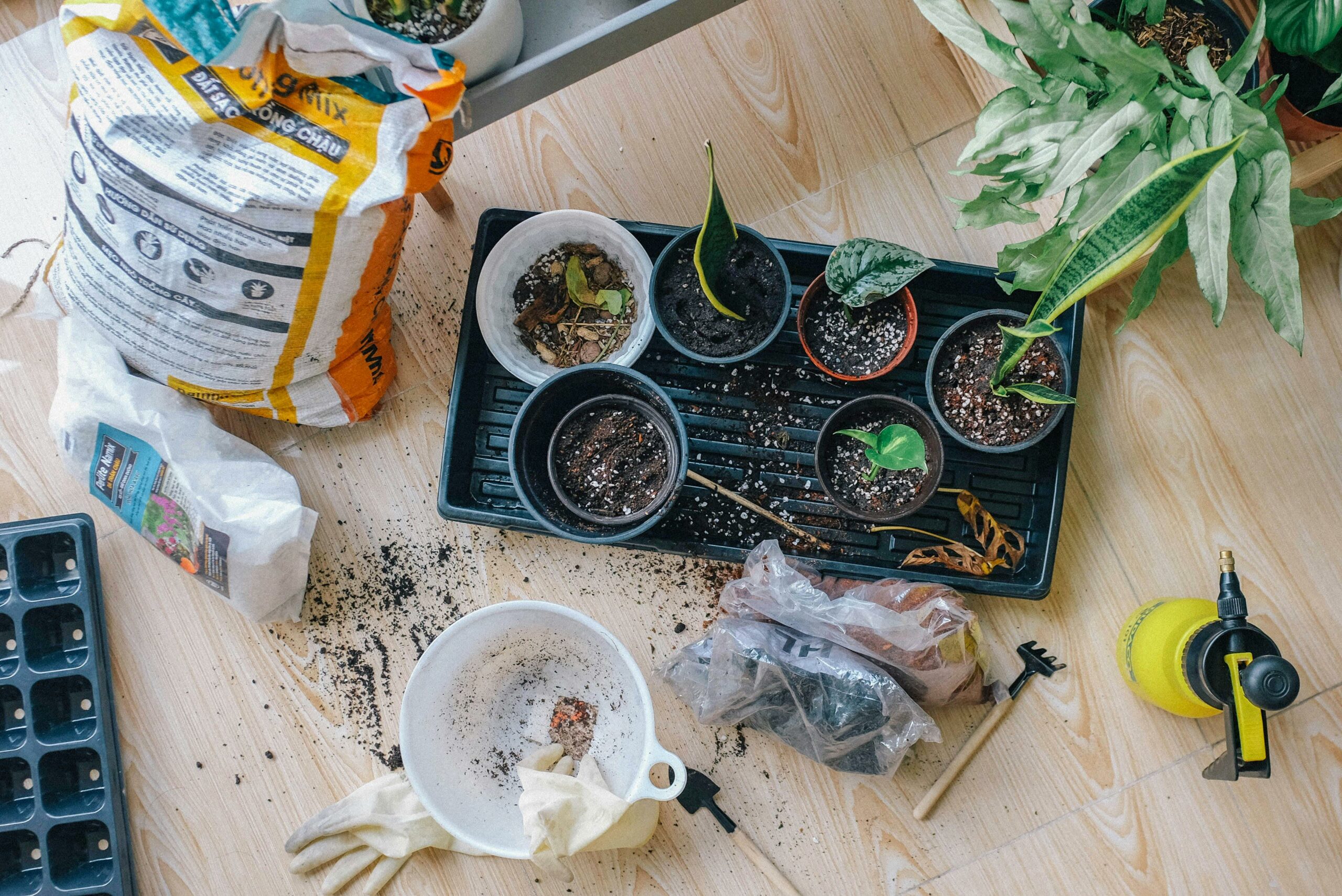Why is Horticulture a Growing Career Path in Australia?
Horticulture, the science and art of growing plants, has long been essential to Australia’s agricultural landscape. With its vast and varied climate zones, the country is uniquely positioned to support various horticultural activities, from fruit and vegetable cultivation to ornamental plants and landscaping. In recent years, horticulture has emerged as one of the fastest-growing career paths in Australia, driven by a confluence of factors, including sustainability concerns, the growing demand for local produce, advances in agricultural technology, and a renewed focus on environmental conservation.
This blog explores why horticulture is becoming a thriving and promising career option for Australians, the opportunities it offers, and the potential for growth in the field.
1. Increased Demand for Sustainable Practices
As climate change continues to profoundly impact agriculture globally, there is a growing focus on sustainable farming and gardening practices. Horticulturists are at the forefront of this movement as they develop innovative ways to produce food, manage landscapes, and conserve natural resources. In Australia, which is experiencing more frequent and severe droughts, sustainable horticultural practices such as water-efficient irrigation, soil conservation, and eco-friendly pest management are critical to ensuring the long-term viability of agriculture.
The rise in organic and locally grown produce has also spurred interest in horticulture. Many consumers are becoming more conscious of food production’s environmental impact and are seeking fresh, sustainably grown products. As the demand for organic foods and environmentally friendly gardening practices increases, horticulture professionals play a key role in meeting these needs.
In response to this demand, horticulturists in Australia are focusing on techniques like hydroponics, aquaponics, and vertical farming, which offer sustainable alternatives to traditional farming methods. These practices help minimise water usage, reduce the need for pesticides, and can be used in urban environments, which is becoming increasingly important in a rapidly urbanising world.
2. Boom in Urban Gardening and Landscaping
Urbanisation in Australia is leading to the rise of innovative gardening practices within city environments. As more people move into urban areas, there is a growing demand for green spaces, rooftop gardens, and urban landscapes that can help mitigate the effects of concrete jungles. As a result, horticulture has become a crucial part of the city’s infrastructure, and the landscaping industry is seeing considerable growth.
Urban gardening, including creating home vegetable gardens, herb gardens, and green walls, has gained popularity. This is partly driven by the desire for fresh, home-grown produce and a stronger connection to nature. Horticulture professionals are involved in designing and creating these green spaces, helping to transform urban areas into vibrant, eco-friendly environments.
Landscape architects and designers with a horticultural background are in high demand as they work to incorporate sustainable landscaping into new urban developments, ensuring that cities remain liveable, comfortable, and environmentally responsible. The need for skilled horticulturists to help design and maintain these urban landscapes is creating exciting career prospects.
3. Growing Focus on Health and Wellbeing
Horticulture is increasingly seen as a career path that can contribute to individual and community well-being. Gardening and working with plants have long been associated with mental health benefits, including reducing stress and anxiety, enhancing mood, and promoting a sense of accomplishment. As public awareness of the connection between nature and mental health increases, horticulture is being embraced as a powerful tool for wellbeing.
Therapeutic horticulture programs, where plants and gardens improve individuals’ health and quality of life, are gaining popularity in healthcare settings such as hospitals, aged care facilities, and mental health centres. These programs are particularly beneficial for people dealing with mental health issues, physical disabilities, or dementia. Horticultural therapy is now recognised as essential, and professionals must design and implement such programs.
Moreover, the health-conscious Australian population is also becoming more engaged with growing their food for better nutrition. Community gardens and home-based gardening projects are thriving, with more people seeking organic fruits, vegetables, and herbs. Horticulturists can capitalise on this growing trend by offering advice on creating productive home gardens or managing large-scale community garden projects.
4. Advancements in Technology and Innovation
The world of horticulture is rapidly evolving, with technological advancements leading to new opportunities and career paths. From automated irrigation systems and drones to artificial intelligence and data analytics, technology is playing an increasing role in making horticultural practices more efficient, productive, and sustainable.
Precision horticulture, which uses sensors, GPS, and data analytics to monitor and manage crops more effectively, is one example of how technology is transforming the industry. This technology enables farmers and horticulturists to optimise water usage, predict crop yields, and reduce the impact of diseases and pests, resulting in better environmental and economic outcomes.
In addition to these innovations in farming, there are developments in plant biotechnology, which can help create more resilient crops that can withstand drought, pests, and diseases. Horticulturists with expertise in these fields are in high demand as agricultural companies, research institutions, and universities look to develop the next generation of food production systems.
Government initiatives, private enterprises, and educational institutions support horticulture research and development in Australia. This creates abundant opportunities for horticulture graduates and professionals to work on the cutting edge of the industry, whether in research, product development, or the implementation of new technologies on the ground.
5. A Diverse Range of Career Opportunities
Horticulture offers many career opportunities, from research and development to practical roles in nurseries, farms, and landscape design. The diverse field allows professionals to specialise in various areas depending on their interests and skills. Some of the career paths in horticulture include:
- Landscape Designer: Specialising in the design and maintenance of outdoor spaces, including public gardens, parks, and private residences.
- Horticultural Scientist: Engaged in research to improve crop yields, pest control methods, and sustainable agricultural practices.
- Nursery Manager: Overseeing the production and sale of plants, including flowers, shrubs, and trees.
- Agricultural Consultant: Providing expert advice to farmers and landowners on improving crop productivity, managing pests, and implementing sustainable farming practices.
- Environmental Educator: Teaching others about the importance of sustainable horticultural practices and the role of plants in environmental conservation.
- Urban Gardener: Specialising in the design and maintenance of garden spaces in urban environments, such as rooftop gardens, community gardens, and green walls.
The flexibility of these career paths and the ever-increasing demand for horticultural expertise make horticulture a highly appealing field for those looking for job security, personal satisfaction, and growth opportunities.
6. Government Support and Educational Opportunities
State and federal governments support horticulture in Australia, recognising its importance to the economy and the environment. Initiatives promoting sustainable agriculture, environmental stewardship, and local food production create further opportunities for those entering the field.
We offer specialised horticulture courses, ranging from certificates to advanced degrees. These programs cover plant biology, soil management, pest control, landscape design, and sustainable farming practices. Students have the skills to succeed in various roles, from fieldwork to research positions.
Moreover, horticulture jobs in Australia offer opportunities for lifelong learning. Professionals can continue to expand their knowledge through professional development courses and industry certifications, ensuring that they stay up-to-date with the latest advancements in the field.
7. Conclusion
As Australia’s population grows and urbanises, the demand for skilled horticulturists in Australia will only increase. Whether working on farms, in research, designing urban landscapes, or managing community gardens, horticulture professionals will continue to play an essential role in shaping the future of Australian agriculture, cities, and the environment.
Suppose you’re looking for a career that offers variety, job stability, and the opportunity to impact the world positively. In that case, horticulture might just be the perfect path for you. With the proper education, passion for plants, and dedication to sustainable practices, you can contribute to the growth and transformation of this exciting field.
So, are you willing to make a Horticulture Career in Australia? If so, visit us today and enrol in one of our horticulture management courses.





